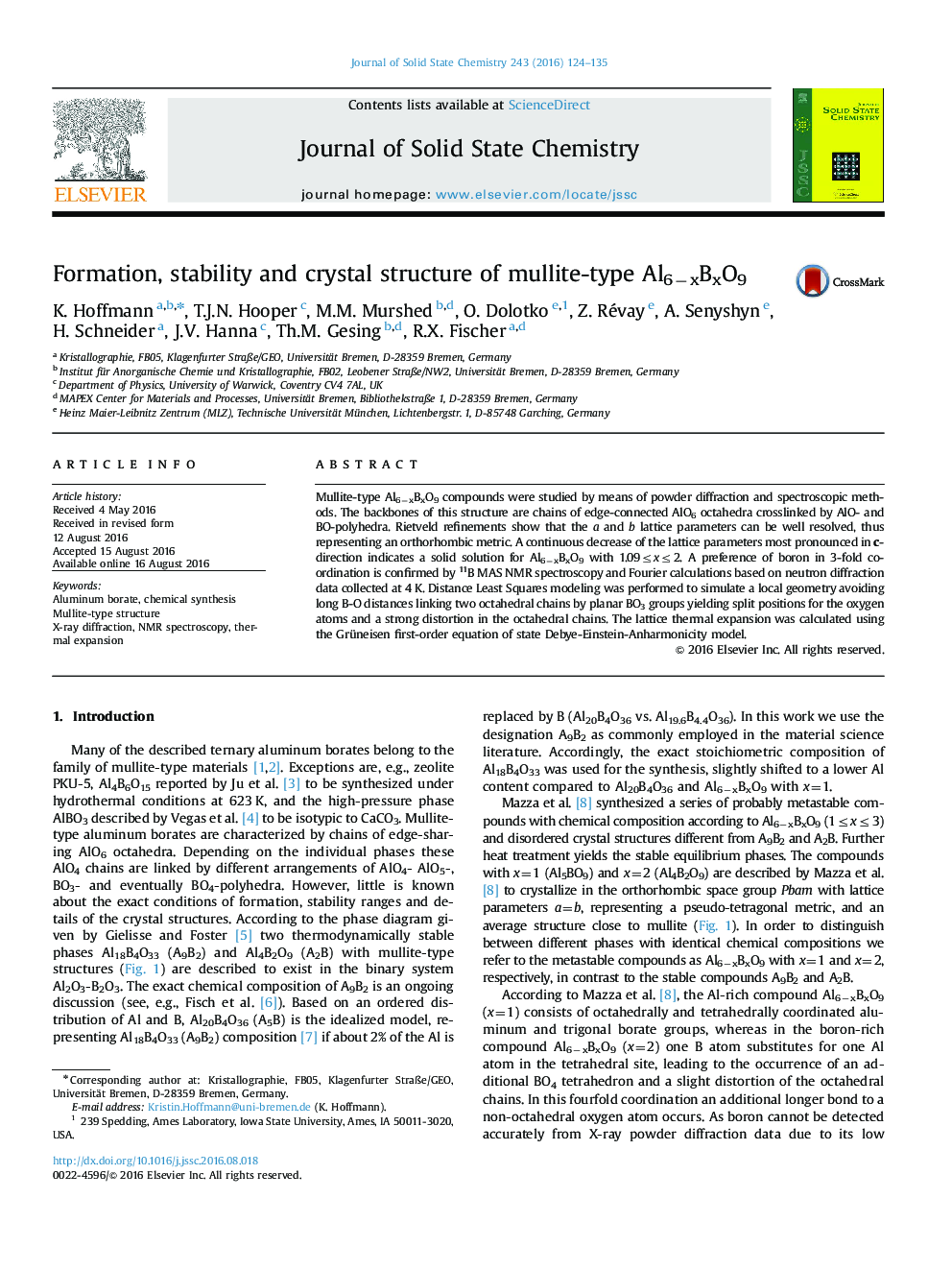| Article ID | Journal | Published Year | Pages | File Type |
|---|---|---|---|---|
| 1329406 | Journal of Solid State Chemistry | 2016 | 12 Pages |
•Decreasing lattice parameters indicate a solid solution for Al6−xBxO9 (1.09≤x≤2).•B-atoms induce a local distortion of neighboring AlO6 octahedra.•A preference of boron in BO3 coordination is confirmed by 11B MAS NMR spectroscopy.•An optimized structural model for Al6−xBxO9 is presented.
Mullite-type Al6−xBxO9 compounds were studied by means of powder diffraction and spectroscopic methods. The backbones of this structure are chains of edge-connected AlO6 octahedra crosslinked by AlO- and BO-polyhedra. Rietveld refinements show that the a and b lattice parameters can be well resolved, thus representing an orthorhombic metric. A continuous decrease of the lattice parameters most pronounced in c-direction indicates a solid solution for Al6−xBxO9 with 1.09≤x≤2. A preference of boron in 3-fold coordination is confirmed by 11B MAS NMR spectroscopy and Fourier calculations based on neutron diffraction data collected at 4 K. Distance Least Squares modeling was performed to simulate a local geometry avoiding long B-O distances linking two octahedral chains by planar BO3 groups yielding split positions for the oxygen atoms and a strong distortion in the octahedral chains. The lattice thermal expansion was calculated using the Grüneisen first-order equation of state Debye-Einstein-Anharmonicity model.
Graphical abstractLocal distortion induced by boron linking the octahedral chains.Figure optionsDownload full-size imageDownload as PowerPoint slide
